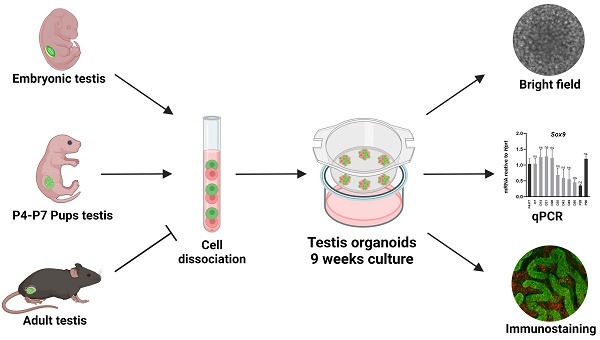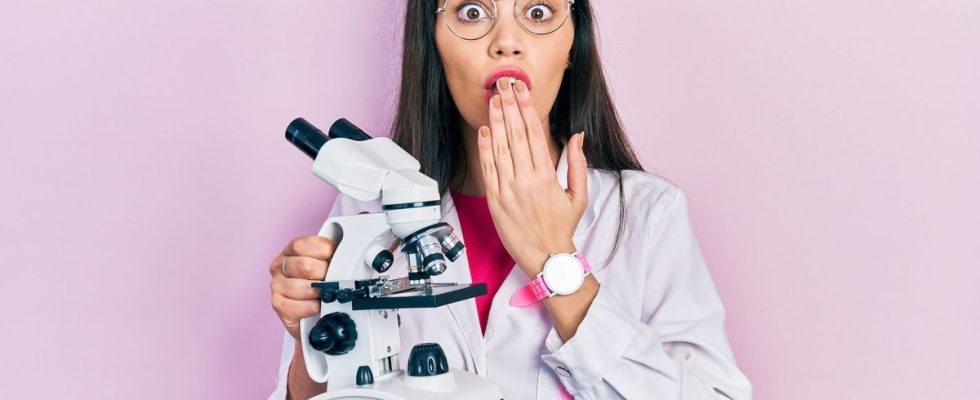Published on
Updated
Reading 2 min.
Researchers have succeeded in growing testicles in the laboratory. This advance will help advance research into male fertility and sexual development disorders. Next step: sperm production in the laboratory.
The testis is responsible for sperm production and testosterone synthesis. Abnormalities in the development and function of the testes lead to disorders of sexual development (DSD) and male infertility. Currently, there is no in vitro system to model this organ. But Israeli scientists have succeeded in growing “laboratory testicles”.
The cheeky experience of a cutting-edge lab
To achieve such a feat, researchers at Bar-Ilan University used immature testicular cells taken from neonatal mice. Cultivated in the laboratory, these cells adopted tubule-like structures and a cellular organization strongly resembling that of the testis in vivo. These tubular structures are present in the natural testicle, where sperm is produced.

Result ? In less than two days, the testicular organoids grew to “closely resemble the structure of the testis in vivo”, reveals the study. The scientists kept these micro testicles alive for eight to nine weeks. After this time, the organoids disintegrated due to too great a need for blood.
The team was unsuccessful in growing organoids from adult mouse testes.
“Although the majority of our study was conducted on neonatal testes, we also examined the ability of embryonic and adult testes to form testicular organoids. While neonatal testes generated testicular organoids that formed within 2 days, embryonic testes were even more efficient at forming testicular organoids and formed deeper, well-defined tubular structures than the neonatal testis. Adult testes did not form any organoids“, note the researchers.
Artificial testicles and real benefits for research
“Laboratory testicles” could significantly advance the understanding of the mechanisms involved in sex determination and provide solutions to male infertility, which affects one in 12 men worldwide.
“Artificial testes are a promising model for basic research into testicular development and function, which may translate into therapeutic applications for disorders of sexual development and infertility“, explains Dr. Nitzan Gonen, author of the studyin a press release.
Testicular organoids could constitute a robust in vitro model to explore different conditions (exposure to pharmacological drugs, toxins, endocrine disruptors, viruses and environmental factors known to negatively affect testicular function and male fertility…).
NO to diets, YES to WW!
Lab sperm production within reach?
Researchers are banking on the production of sperm from these organoids.
“If these organoids are able to completely mimic the functionality of adult testes, we expect that they will be able to produce haploid sperm in vitro“, confide the authors. “This ability could be revolutionary and allow infertile patients to obtain haploid sperm“, they conclude.
In the future, the team plans to produce “lab testicles” from human samples. A testicle produced from human cells, for example, could help children being treated for cancer. As they are too young to produce their own sperm, these samples could be frozen and used later to have children. Gonen’s vision is to grow testis organoids from biopsies of children with cancer and therefore potentially grow fertile sperm in vitro.
